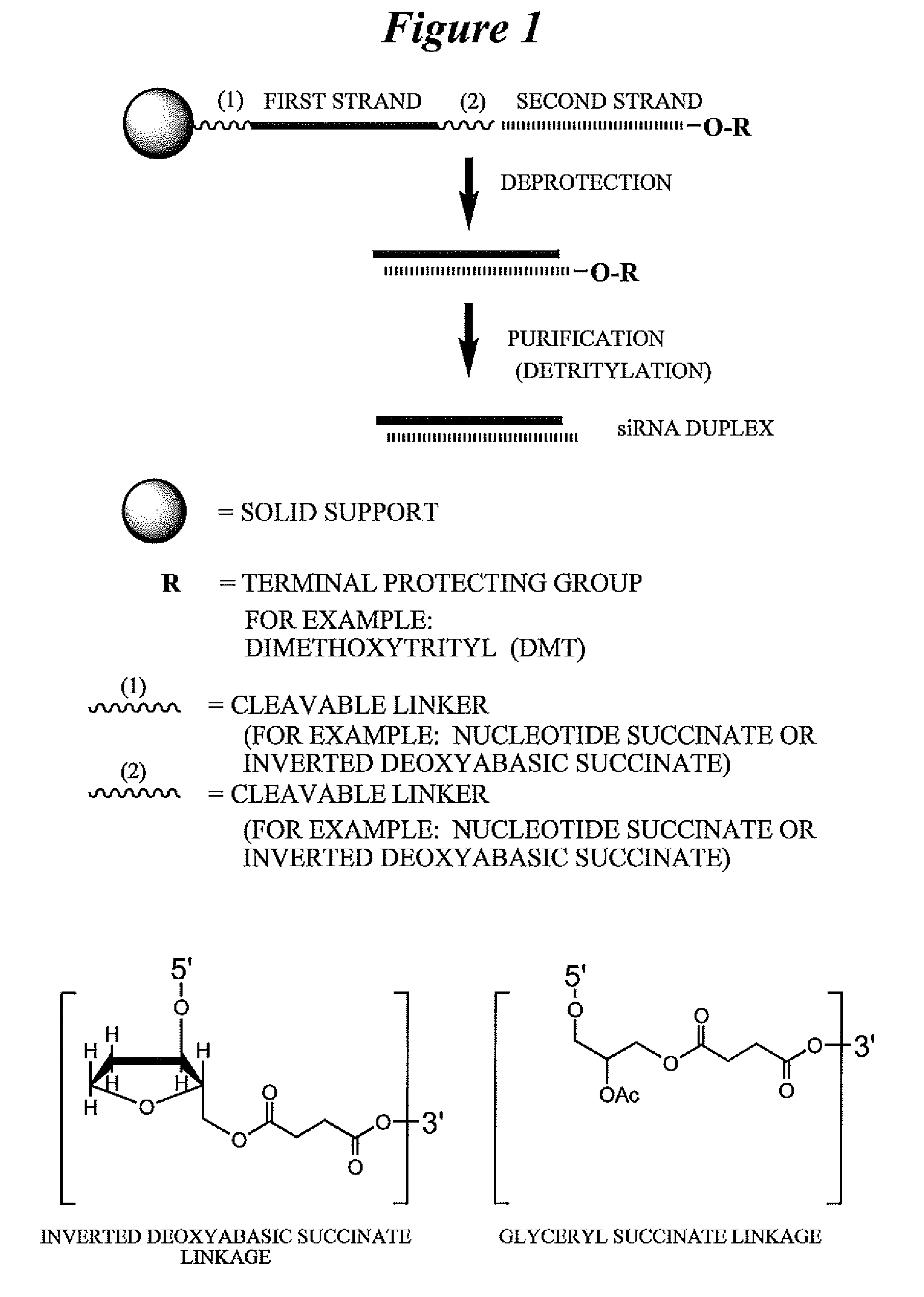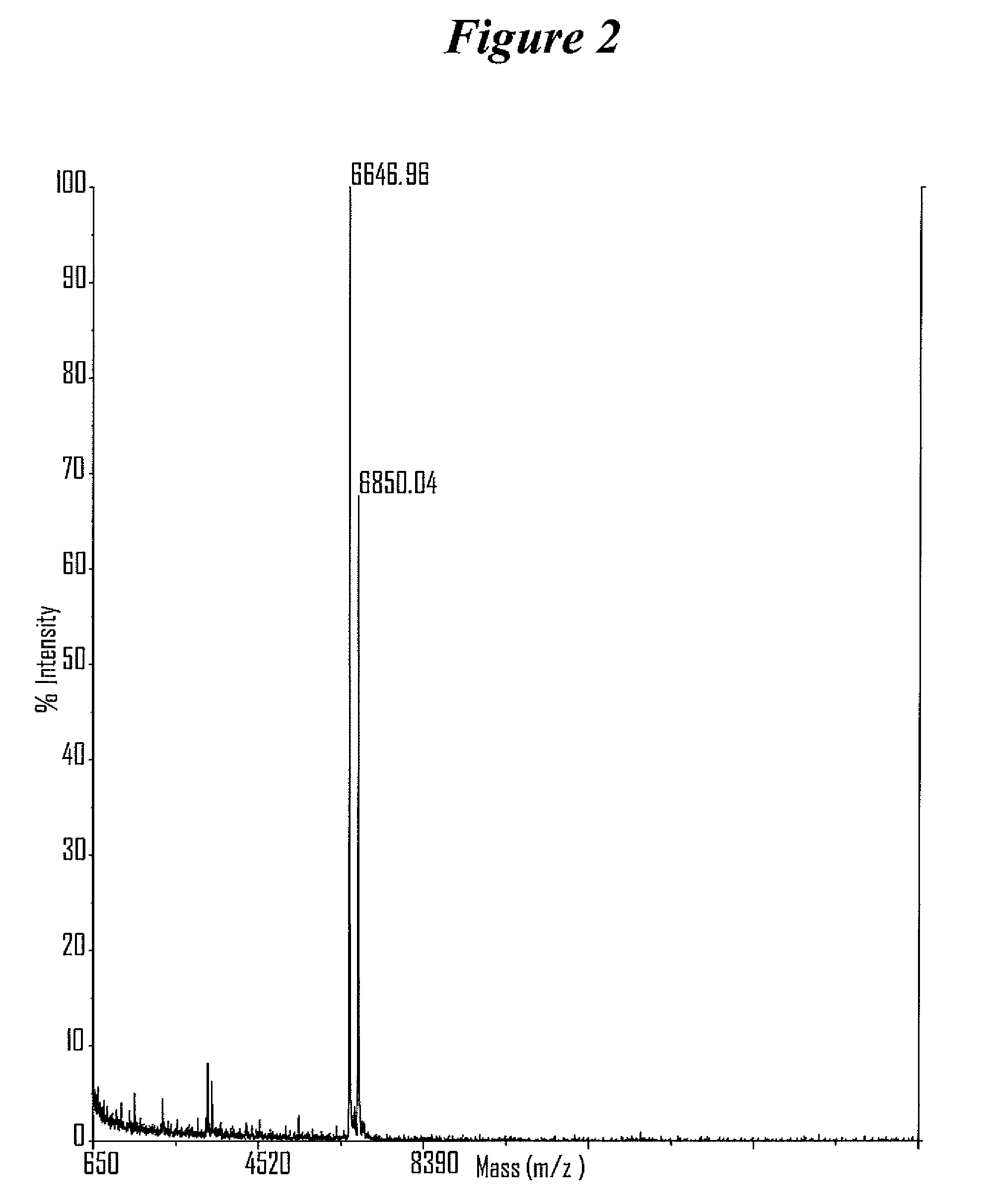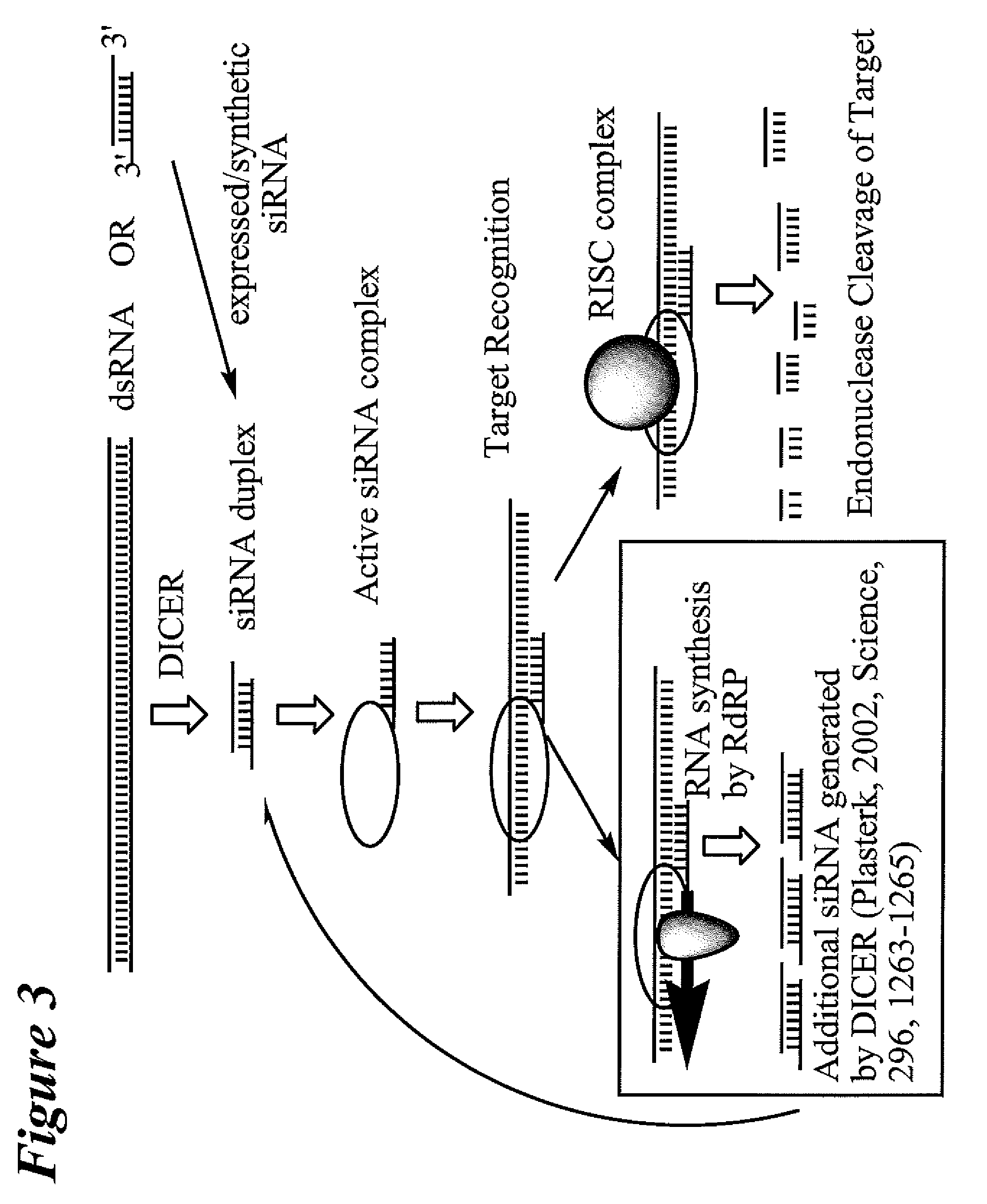RNA interference mediated inhibition of CXCR4 gene expression using short interfering nucleic acid (siNA)
a technology of rna interference and nucleic acid, which is applied in the direction of organic chemistry, biochemistry apparatus and processes, sugar derivatives, etc., can solve the problems that the interference activity cannot be assayed, and the modification of the interference activity is similarly not provided by the authors
- Summary
- Abstract
- Description
- Claims
- Application Information
AI Technical Summary
Benefits of technology
Problems solved by technology
Method used
Image
Examples
example 1
Tandem Synthesis of siNA Constructs
[0362]Exemplary siNA molecules of the invention are synthesized in tandem using a cleavable linker, for example, a succinyl-based linker. Tandem synthesis as described herein is followed by a one-step purification process that provides RNAi molecules in high yield. This approach is highly amenable to siNA synthesis in support of high throughput RNAi screening, and can be readily adapted to multi-column or multi-well synthesis platforms.
[0363]After completing a tandem synthesis of a siNA oligo and its complement in which the 5′-terminal dimethoxytrityl (5′-O-DMT) group remains intact (trityl on synthesis), the oligonucleotides are deprotected as described above. Following deprotection, the siNA sequence strands are allowed to spontaneously hybridize. This hybridization yields a duplex in which one strand has retained the 5′-O-DMT group while the complementary strand comprises a terminal 5′-hydroxyl. The newly formed duplex behaves as a single molecu...
example 2
Identification of Potential siNA Target Sites in any RNA Sequence
[0367]The sequence of an RNA target of interest, such as a viral or human mRNA transcript, is screened for target sites, for example by using a computer folding algorithm. In a non-limiting example, the sequence of a gene or RNA gene transcript derived from a database, such as Genbank, is used to generate siNA targets having complementarity to the target. Such sequences can be obtained from a database, or can be determined experimentally as known in the art. Target sites that are known, for example, those target sites determined to be effective target sites based on studies with other nucleic acid molecules, for example ribozymes or antisense, or those targets known to be associated with a disease or condition such as those sites containing mutations or deletions, can be used to design siNA molecules targeting those sites. Various parameters can be used to determine which sites are the most suitable target sites within...
example 3
Selection of siNA Molecule Target Sites in a RNA
[0368]The following non-limiting steps can be used to carry out the selection of siNAs targeting a given gene sequence or transcript.[0369]1. The target sequence is parsed in silico into a list of all fragments or subsequences of a particular length, for example 23 nucleotide fragments, contained within the target sequence. This step is typically carried out using a custom Perl script, but commercial sequence analysis programs such as Oligo, MacVector, or the GCG Wisconsin Package can be employed as well.[0370]2. In some instances the siNAs correspond to more than one target sequence; such would be the case for example in targeting different transcripts of the same gene, targeting different transcripts of more than one gene, or for targeting both the human gene and an animal homolog. In this case, a subsequence list of a particular length is generated for each of the targets, and then the lists are compared to find matching sequences i...
PUM
| Property | Measurement | Unit |
|---|---|---|
| molecular weight | aaaaa | aaaaa |
| temperature | aaaaa | aaaaa |
| pH | aaaaa | aaaaa |
Abstract
Description
Claims
Application Information
 Login to View More
Login to View More - R&D
- Intellectual Property
- Life Sciences
- Materials
- Tech Scout
- Unparalleled Data Quality
- Higher Quality Content
- 60% Fewer Hallucinations
Browse by: Latest US Patents, China's latest patents, Technical Efficacy Thesaurus, Application Domain, Technology Topic, Popular Technical Reports.
© 2025 PatSnap. All rights reserved.Legal|Privacy policy|Modern Slavery Act Transparency Statement|Sitemap|About US| Contact US: help@patsnap.com



